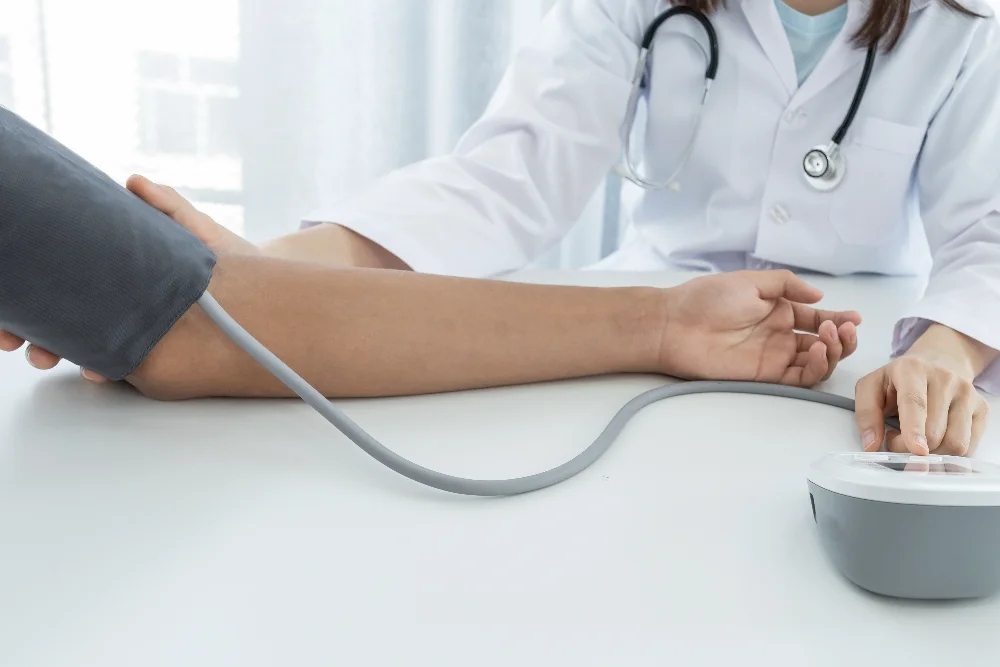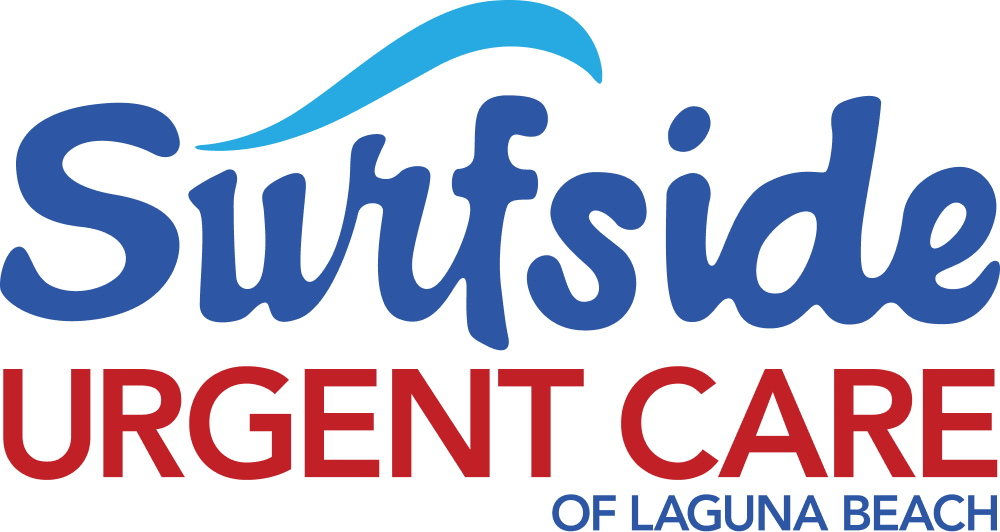Will Urgent Care Treat High Blood Pressure?

Hypertension occurs when the force of the blood against your artery walls is consistently too high. Over time, this pressure can damage blood vessels and organs. It’s often called the “silent killer” because it doesn’t always come with obvious symptoms but can lead to life-threatening complications if untreated.
Health Complications of High Blood Pressure
Heart Disease
High blood pressure forces your heart to work harder than usual, leading to thickened heart walls, heart failure, or heart attacks.
Stroke
Uncontrolled blood pressure can cause or contribute to a stroke by damaging or weakening blood vessels in the brain.
Kidney Failure
The kidneys filter waste from the blood. High blood pressure can damage the blood vessels in the kidneys, reducing their ability to function correctly.
Symptoms Of High Blood Pressure
High blood pressure can sometimes be silent, but specific symptoms may signal it’s time to take action.
Headaches
Frequent or severe headaches can indicate elevated blood pressure levels.
Dizziness or Lightheadedness
Feeling faint or unsteady might be related to blood pressure fluctuations.
Blurred Vision
Sudden vision changes may suggest dangerously high blood pressure.
Chest Pain
This could be a sign of heart strain due to high blood pressure.
Shortness of Breath
When the heart is overworked, breathing may become difficult.
Nosebleeds
While not always caused by high blood pressure, frequent nosebleeds can be a red flag.
Fatigue or Confusion
Lack of proper blood flow can make you feel exhausted or mentally foggy.
Irregular Heartbeat
Palpitations or fluttering could be related to cardiovascular strain.

What Blood Pressure Is Considered an Emergency?
Blood pressure readings of 180/120 mmHg or higher can be a medical emergency, especially if accompanied by symptoms like chest pain, shortness of breath, or vision problems.
What is the Difference Between Urgent Care and the ER for High Blood Pressure?
The emergency room handles life-threatening conditions, while urgent care is best for non-life-threatening yet concerning symptoms. If you’re stable but have high readings, urgent care can help. But if your symptoms are severe or getting worse, go to the ER.
When to Go to Urgent Care for High Blood Pressure?
If you have consistently high readings (140/90 mmHg or above), mild symptoms, or need evaluation and treatment without emergency intervention, go to urgent care.
When to Skip Urgent Care and Go to the ER?
Go straight to the ER if you experience chest pain, difficulty breathing, sudden vision changes, or confusion alongside very high readings.
Will Urgent Care Treat High Blood Pressure?
Yes, urgent care will treat high blood pressure if your condition is not critical. They can evaluate your symptoms, monitor your readings, and offer initial treatment options.
What Can Urgent Care Do About High Blood Pressure?
Urgent care centers can assess your current condition, determine the severity of your hypertension, and provide medication or lifestyle advice.
What Tests Will Urgent Care Run for High Blood Pressure?
Blood Pressure Monitoring
You’ll have your blood pressure measured more than once to confirm the reading.
EKGs
If you have chest pain or irregular heartbeat, they may run an electrocardiogram (EKG) to check your heart’s activity.
Blood Tests
These help assess organ function and look for complications related to hypertension.
What Is Urgent Treatment For High Blood Pressure?
Urgent care may give oral medications to quickly and safely lower your blood pressure. They will also educate you on warning signs and when further medical help is needed.
Can Urgent Care Prescribe Medication for High Blood Pressure?
Yes, urgent care can prescribe medication for high blood pressure, especially if it’s a first-time diagnosis or you’ve run out of your usual meds. You can contact the Surside Urgent Care for all your medications
How Long Can You Have High Blood Pressure Before It Causes Damage?
Damage can start occurring over months or years of uncontrolled blood pressure. That’s why early detection and management are crucial.
How Do I Get My BP Down ASAP?
Relax, take deep breaths, avoid stimulants like caffeine, and follow your doctor’s advice. If you’ve been prescribed medication, take it exactly as directed.
Should I Lie Down If My Blood Pressure Is High?
Lying down may help if you’re dizzy, but it’s not a cure. Monitor your symptoms and seek medical advice.
FAQs
Should I Go to the Hospital if My Blood Pressure is 140 Over 90?
Not necessarily. While 140 over 90 is considered high, it’s not typically an emergency. Visit urgent care for evaluation.
What Should I Do if My Blood Pressure is 160 Over 100?
If you have no severe symptoms, go to urgent care. If you feel chest pain, confusion, or difficulty breathing, go to the ER.
Can High Blood Pressure Cause Flashing Lights in the Eyes?
Yes, high blood pressure can cause flashing lights in eyes due to pressure on the retina’s blood vessels.
Can High Blood Pressure Cause Ringing in the Ears?
Yes, high blood pressure can cause ringing in the ears or a pulsing sound known as pulsatile tinnitus.
Not necessarily. While 140 over 90 is considered high, it’s not typically an emergency. Visit urgent care for evaluation.
If you have no severe symptoms, go to urgent care. If you feel chest pain, confusion, or difficulty breathing, go to the ER.
Yes, high blood pressure can cause flashing lights in eyes due to pressure on the retina’s blood vessels.
Yes, high blood pressure can cause ringing in the ears or a pulsing sound known as pulsatile tinnitus.
Get Expert High Blood Pressure Care at Surfside Urgent Care in Laguna Beach
If you’re experiencing any of the symptoms mentioned above or are unsure about your blood pressure levels, don’t wait. At Surfside Urgent Care, we’re here to help. We offer fast, affordable, and professional medical care to assess and manage your blood pressure. Whether you need testing, medication, or expert guidance, we are committed to supporting you toward better heart health. Visit us today to get the care you deserve.

